Filter News
Area of Research
- (-) Computer Science (7)
- (-) Fusion and Fission (5)
- Advanced Manufacturing (1)
- Biology and Environment (26)
- Biology and Soft Matter (1)
- Clean Energy (26)
- Computational Biology (1)
- Computational Engineering (1)
- Electricity and Smart Grid (1)
- Functional Materials for Energy (1)
- Materials (40)
- Materials for Computing (4)
- National Security (18)
- Neutron Science (8)
- Supercomputing (51)
News Topics
- (-) Artificial Intelligence (7)
- (-) Big Data (4)
- (-) Chemical Sciences (4)
- 3-D Printing/Advanced Manufacturing (3)
- Advanced Reactors (6)
- Bioenergy (1)
- Biology (1)
- Biomedical (1)
- Buildings (2)
- Composites (1)
- Computer Science (17)
- Critical Materials (1)
- Cybersecurity (1)
- Decarbonization (2)
- Energy Storage (6)
- Environment (3)
- Exascale Computing (2)
- Fossil Energy (1)
- Frontier (1)
- Fusion (22)
- Grid (4)
- High-Performance Computing (4)
- Isotopes (1)
- ITER (6)
- Machine Learning (4)
- Materials (1)
- Materials Science (5)
- Microscopy (1)
- Nanotechnology (1)
- Net Zero (1)
- Neutron Science (1)
- Nuclear Energy (26)
- Partnerships (3)
- Physics (1)
- Quantum Science (3)
- Security (2)
- Simulation (3)
- Space Exploration (1)
- Summit (1)
- Sustainable Energy (6)
- Transportation (2)
Media Contacts
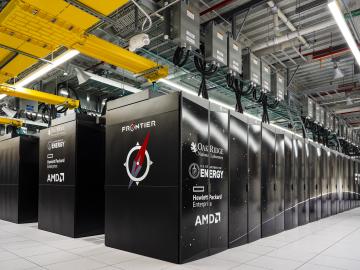
ORNL is home to the world's fastest exascale supercomputer, Frontier, which was built in part to facilitate energy-efficient and scalable AI-based algorithms and simulations.
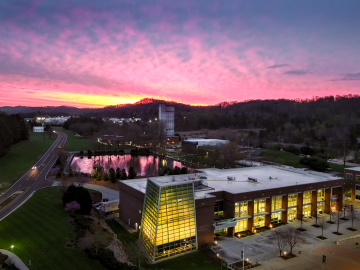
In fiscal year 2023 — Oct. 1–Sept. 30, 2023 — Oak Ridge National Laboratory was awarded more than $8 million in technology maturation funding through the Department of Energy’s Technology Commercialization Fund, or TCF.

Leigh R. Martin, a senior scientist and leader of the Fuel Cycle Chemical Technology group at ORNL, has been named a Fellow of the American Chemical Society for 2023.
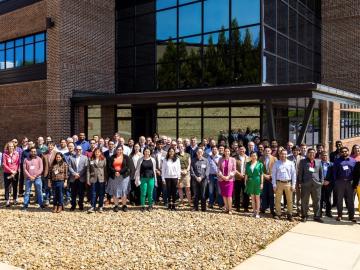
ORNL hosted its fourth Artificial Intelligence for Robust Engineering and Science, or AIRES, workshop from April 18-20. Over 100 attendees from government, academia and industry convened to identify research challenges and investment areas, carving the future of the discipline.
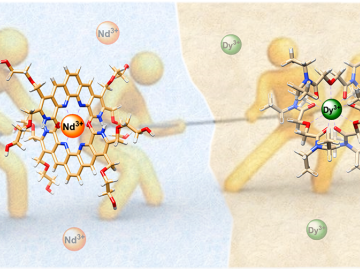
ORNL scientists combined two ligands, or metal-binding molecules, to target light and heavy lanthanides simultaneously for exceptionally efficient separation.
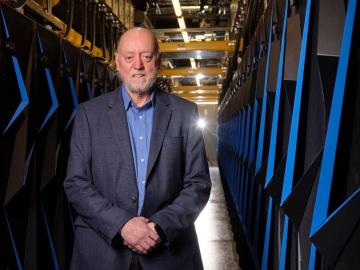
A force within the supercomputing community, Jack Dongarra developed software packages that became standard in the industry, allowing high-performance computers to become increasingly more powerful in recent decades.
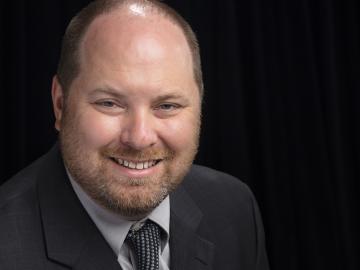
Joseph Pickel has been elected a 2021 fellow of the American Chemical Society, or ACS. Pickel supports the Fusion and Fission Energy and Sciences Directorate as environment, safety and health

In collaboration with the Department of Veterans Affairs, a team at Oak Ridge National Laboratory has expanded a VA-developed predictive computing model to identify veterans at risk of suicide and sped it up to run 300 times faster, a gain that could profoundly affect the VA’s ability to reach susceptible veterans quickly.

Oak Ridge National Laboratory is training next-generation cameras called dynamic vision sensors, or DVS, to interpret live information—a capability that has applications in robotics and could improve autonomous vehicle sensing.

Researchers at Oak Ridge National Laboratory are taking inspiration from neural networks to create computers that mimic the human brain—a quickly growing field known as neuromorphic computing.




